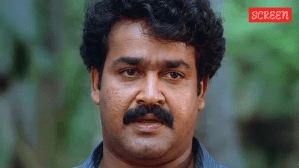Click here to follow Screen Digital on YouTube and stay updated with the latest from the world of cinema.
The King’s Speech
It is very hard not to like Colin Firth.
DIRECTOR: Tom Hooper
CAST: Colin Firth,Geoffrey Rush,Helena Bonham Carter
rating: ****1/2
It is very hard not to like Colin Firth. It is downright impossible not to like him when he is playing the reluctant monarch and loving father and husband,rendered as powerless as his commonest subject by a handicap. How could the Academy not succumb?
An actor who brings a wealth of silent integrity to screen,Firth plays the stammering King George VI with a tortured helplessness and laconic humour. He is a guy who’s as acutely aware of the unfairness of his shortcomings as the unjustness of his privilege.
Its a master blow,to have a king ask: If I am king,where is my power? Can I declare war? Form a government? Levy a tax? No! And yet I am the seat of all authority because they think that when I speak,I speak for them.
And thats one task Albert Frederick Arthur George alias King George VI alias Bertie cant do well.
Its his wife Elizabeth (Bonham Carter) who finds speech therapist Lionel Logue (Rush) in the yellow pages. Logues world is clearly a far place from Buckingham Palace,but from a recent speech that Bertie painfully and publicly struggled past,and the marbles a doctor almost made him gobble as cure,it is clear that the future king and his determined queen have few options.
Thus start the encounters between Bertie and Lionel,in which the iconoclast speech therapist insists on entering places that the royalty has been taught are inviolate space. Logue is respectful but stern,knowing his mind just as clearly as Bertie is unsure of his and talking directly to the man behind the coat-tails,the boy behind the stammer.
In his grand office with an interestingly painted mural,its he who is the master of the castle,its Bertie and Elizabeth who perch nervously on the edge of the couch,looking around,trying to fit in. As a couple often overshadowed by both the personality and scandal of Berties elder brother Edward who chose to give up the throne for the woman he loved,thus paving the way for Bertie to be king its a layered performance. Their measured gait,the falling back into the shadows,the almost apologetic expressions of authority symptomatic of Bertie and Elizabeths status of the accidental king and queen.
Cinematographer Danny Cohen often uses the fish-eye lens,consolidating the impression that we are looking into the kings life through a peeping hole. We are outsiders getting as intimate a peek as possible of royalty but still outsiders.
To make this king even more likable,we hear him express disgust at Hitler as well as the rising media obsession with the monarchy (earlier we had to just look good and not fall off a horse,now we have to ingratiate themselves into peoples homes),to worry over the coming war,to be shyly proud of his limited vocabulary of choicest abuses,to be overawed by his illustrious family,and to be hemmed in by the choices others make for him.
In a year that was believed to belong to another misfit from just the other side of the spectrum,talking much more but getting across as little,opening as many doors but closing too many others,if King George VI won,it may have been because of one reason some social networks are just too hard to discount.
- 01
- 02
- 03
- 04
- 05


































